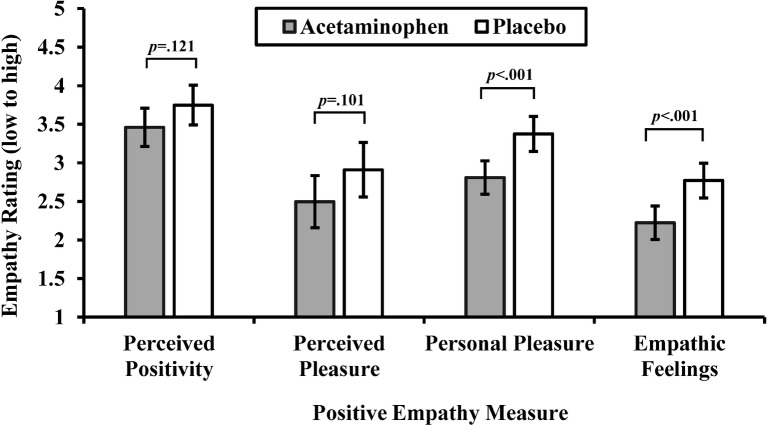by Sayer Ji
Two highly concerning clinical studies in four years reveal that Tylenol not only kills pain but human empathy as well, adding soul-deadening properties to its well-known list of serious side effects.
When will we learn? Synthetic, patented chemicals have profound unintended, adverse health effects which take decades to recognize, long after exposed populations have suffered profoundly. The risks of these pharmaceuticals are sometimes several orders of magnitude higher than their natural alternatives. Over-the-counter painkillers have become classical examples of this, with so-called “low-dose” aspirin no longer considered safe enough to use for the primary prevention of cardiovascular disease and stroke, ibuprofen causing tens of thousands of deaths each year due to its recently discovered cardiotoxicity, and Tylenol’s adverse effects on the psychospiritual constitution of humanity only just beginning to surface on top of it’s already well-established extreme toxicity to the liver.
In 2015, a groundbreaking study found that Tylenol (known by the chemical names acetaminophen and paracetamol) not only blunts pain but has potent psychotropic side effects highly relevant to human social connection and behavior, such as blunting both positive and negative emotional stimuli, also known as “affect flattening” in psychiatric terminology.
Now, a new study published last month in the journal Frontiers of Psychology, titled, “A Social Analgesic? Acetaminophen (Paracetamol) Reduces Positive Empathy,” further confirms that this extremely popular drug (billions of doses taken annually) directly interferes with the experience of human empathic connection; specifically, reducing empathy for other people’s suffering.
In the new study, researchers tested the hypothesis that Tylenol impaired affective processes related to the experience of empathy with a double-blinded, placebo-controlled trial consisting of 114 undergraduate students, who randomly received either 1,000 mg of the drug or a placebo.
One hour after administration, subjects read scenarios about the uplifting experiences of other people (different protagonists within the stories), and their responses were evaluated with the aim of determining their ability to empathize. The researchers reported that,
“Results showed that acetaminophen reduced personal pleasure and other-directed empathic feelings in response to these scenarios.”
They further reported:

“These findings suggest that (1) acetaminophen reduces affective reactivity to other people’s positive experiences and (2) the experience of physical pain and positive empathy may have a more similar neurochemical basis than previously assumed. Because the experience of positive empathy is related to prosocial behavior, our findings also raise questions about the societal impact of excessive acetaminophen consumption.”
Below is a graph of the relative responses between Tylenol-treated and placebo-treated individuals, with the Tylenol group clearly seeing reductions in positive empathic responsiveness:
© April 21, 2019 GreenMedInfo LLC. This work is reproduced and distributed with the permission of GreenMedInfo LLC. Want to learn more from GreenMedInfo? Sign up for the newsletter here http://www.greenmedinfo.com/greenmed/newsletter.
Do you find these posts helpful and informative? Please CLICK HERE to help keep us going!




